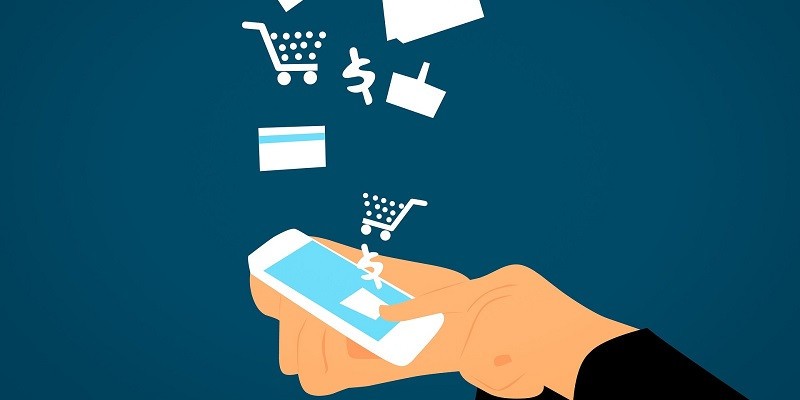Is It Possible to Shop Online Safely When 3 out of 4 Retailers Admit to Having Faced Cyber Attacks?

According to Statista.com, the global online shopping market size is expected to reach 4 trillion in 2020. So far, the US, UK, and Sweden are the top 3 countries that have the leading average e-commerce revenue per shopper. Another mind-blowing prediction is that there will be around 300 million online shoppers in the US alone in 2023. No doubt, one of the reasons why these numbers are increasing is that you can buy almost anything on the Internet. Plus, some retailers now offer free shipping as well as more shipping and payment options, which also makes it buying things online much easier. However, no matter how convenient online shopping might be, we urge you not to forget about the dangers related to it. In this article, we not only discuss the risks of purchasing online but also present tips to shop online safely.
Why it might be unsafe to shop online
Cybercrime keeps increasing, and it is not a secret that hackers are after online shops more often then they attack regular websites. However, the rising number of cyber attacks on retailers is not the main problem. What is worse is that many retailers know about the increasing threats, but are still not prepared to face them or even to deal with the consequences of being attacked by hackers.
This sad truth was revealed in a report called 2019 Global State of Cybersecurity in Small and Medium-Sized Businesses that was commissioned by Keeper Security. To prepare it, specialists surveyed over two thousand IT and IT security professionals around the world (239 of them worked in the retail industry). One of the most shocking findings was that 61 percent of retailers experienced a cyber attack with the past year. Also, 50 percent of them admitted that they are not prepared for a data breach.
Retailers were also asked to name reasons that prevent them from ensuring their companies’ cyber security. Most of them admitted having insufficient personnel (91%), and half of them claimed to have insufficient budget for cyber security. Also, 40 percent of retailers claimed that they do not have the knowledge needed to protect their business from cyber attacks. Moreover, what might seem surprising it that even though 69 percent of respondents claimed they understand that strong passwords can protect their systems, half of them admitted that they are unaware of their employees’ password habits.
Thus, in short, online shopping might be risky not only because of increasing cyber attacks but also because retailers do not put enough effort to prevent them and protect their customers’ data. Consequently, we advise you to learn what you can do to protect yourself while doing online shopping.
What can consumers do to protect themselves while doing online shopping?
While we wait for retailers to learn how to prepare and deal with online threats, we present you with a list of our top 5 tips to shop online safely.
1. Pick only trustworthy online shops
If you like online shopping but want to be safe while doing so, you should make sure that you buy from reputable websites only. Otherwise, you could be scammed, or you could reveal your sensitive information to hackers. Whenever you come across a shop of which you have not heard before, you should look for reviews and other information about it to make sure that it is trustworthy. Also, same as with other websites, you should always check if you can see a green or gray lock in front of the visited online shop’s URL address. If you see a crossed-over lock, it might mean that the website is not safe. In some cases, your browser might even prevent you from entering a site by showing a warning. You should always react to such warnings, especially if you are entering a site for the first time and do not really know anything about it.
2. Do not provide more information than it is required
Many online shops suggest creating accounts so that you would not need to insert your shipping address or other needed information the next time that you buy from the same retailer. If you decide to create an account, we recommend providing only the necessary information. We advise this because, in a case of a data breach, hackers would collect less information about you. Of course, your date of birth might not look as important as your password or your address, but such details could still be useful in various scams, or they could help hackers answer your security questions. Thus, the less information you insert, the safer you might be. Of course, if you do not think you will shop at the same website again or for a long time, it would be best to purchase what you need without creating an account.
3. Set up strong passwords
It is also important that all of your shopping accounts have unique and strong passwords. You need them to be unique so that if one of your accounts gets breached, the hackers behind the attack would not get access to your other shopping profiles. Strong passwords are necessary to ensure that cybercriminals could not guess or brute-force your passcodes and gain control of your accounts just like that. If you have too many shopping accounts to be able to come up with a unique and strong password for each of it, we advise getting a dedicated password manager that will do that for you. The reason we recommend using a dedicated password manager is because password managers that come with browsers are considered to be less secure.
4. Never shop while connected to public Wi-Fi hotspots
Cybersecurity experts often advise users to make sure that their devices used for online shopping are malware-free and secure, but it is just as important to have a secure Internet connection. Public Wi-Fi hotspots are not safe because anyone, including hackers, can connect to them. Also, cybercriminals might create a hotspot of their own that might have almost the same name as the free Wi-Fi connection of the cafe that you are visiting. Needless to say, submitting any sensitive information while being connected to a fake Wi-Fi hotspot could result in it being recorded by hackers. To avoid this, you should use your mobile data instead or do your online shopping later, when you can have a secure Internet connection.
5. Use a credit card or a payment application
Many banks offer liability protection for both offline and online shopping with their credit cards. It means that if you notice unauthorized charges made by someone with your credit card, you can report them instead of paying for fraudulent purchases. If the investigation confirms that someone misused your credit card, you will not have to pay. You might get your money back for fraudulent purchases if you use a debit card, but the process might be more complicated, and you may have less time to report fraud.
Also, you can use payment apps, such as PayPal, if you do not want to own a credit card. You can keep your account empty and add money to it only when you purchase something online. This way, even if someone managed to hack your payment application, they would be unable to misuse it without any money on it. Of course, it would still be better to avoid being hacked, which is why we highly recommend using unique and strong passwords for your payment apps and Two-Factor Authentication to add an extra security layer.
Overall, the research tells us that many retailers might be unprepared to prevent cyber attacks, and it might take lots of time for them to achieve it. Therefore, it is obvious that users who want to feel safe when they shop online should take matters into their own hands. If you agree with us, we encourage you to use our provided tips to shop online safely.








